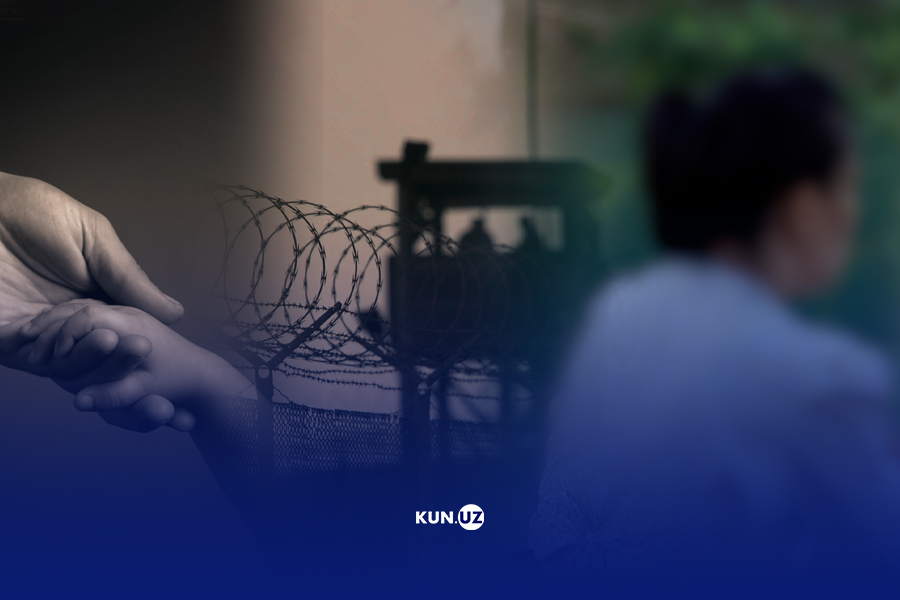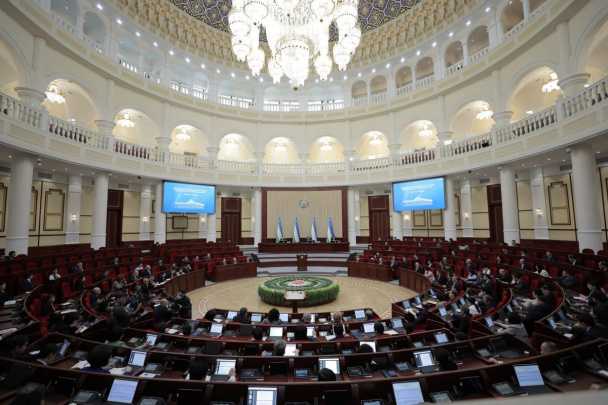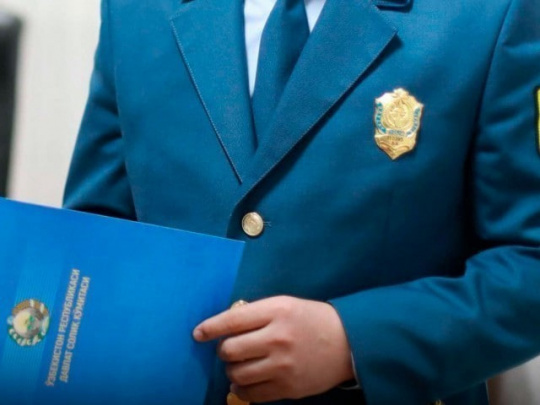Single mother sentenced to 8 years in prison for a fabricated crime orchestrated by police
In Qibray district, a 35-year-old woman has become a victim of a crime fabricated by law enforcement. The case was handled with gross negligence, violating procedural norms, while the judge seemingly overlooked these flaws. As a result, a family has been shattered, leaving children fatherless and now motherless too.

“I Did Not Sell My Child”
On March 29, 2024, Zulkhumor, a resident of Qibray born in 1989, was arrested in her home on charges of allegedly agreeing to sell her daughter, born in 2014, for $2,000. She was caught after receiving $500 as an initial payment. Zulkhumor is also a single mother of a disabled son, born in 2011.
During the court session, she stated that she had no intention of selling her child, but rather wanted to give her to a financially stable family who could take better care of her.
"My son is disabled, and I am the only breadwinner in the family. I have been supporting my children by selling clothes online and at Chorsu Bazaar in Tashkent. I suffer from diabetes and kidney problems, which prevent me from doing physically demanding work.
Because I was struggling to provide for my children, I wanted to give my daughter to a family that could provide her with a better life. I never intended to sell her,” Zulkhumor said.
According to court documents, the "buyers" repeatedly pressured her with money offers, pushing her into allegedly agreeing to sell the child. On the day of the operation, she once again insisted she would not sell her daughter. However, the fabricated crime proceeded for the sake of showing "results."
The investigation's injustice was compounded by a biased trial. On June 26, 2024, the Qibray District Criminal Court found Zulkhumor guilty under Article 135 of the Criminal Code (human trafficking), sentencing her to 8 years in prison.
A Life of Orphanhood and Hardship
Zulkhumor’s sister shared their tragic backstory:
"Our father died when I was 1 and my sister was 3. We grew up in hardship, with no support even from our uncles. Our mother worked hard, selling dairy products at the market to provide for us, carrying heavy bags back and forth.
My sister was married off at 19, rushed into it because her husband's elderly relative was ill and they wanted to witness the wedding. We later found out that her husband had a medical condition. After 8 months of marriage, she returned home while pregnant and gave birth to a son, who was mentally disabled.
Relatives, including our mother, suggested giving the boy to an orphanage, claiming the disability was inherited from his father. But my sister couldn’t abandon her child and raised him herself.
When her son was a bit older, our mother insisted she remarry, hoping to ease her burden. Unfortunately, her second marriage also failed. She had a daughter from this marriage, but the father refused to even give the child his surname."
Like their mother before them, Zulkhumor struggled to provide for her two children by selling dairy products. After her mother’s death, she was blamed for it by relatives, who criticized her failed marriages and her disabled son.
Eventually, Zulkhumor had to sell her home for 30 million UZS, planning to buy a new one. However, her health issues and her son's care expenses quickly drained the money. Their living conditions worsened, and the family faced even more hardship.
Then, one day, Zulkhumor’s sister received a call from the police informing her that Zulkhumor had been arrested for allegedly trying to sell her 10-year-old daughter for $2,000.
Zulkhumor is now in prison, while her two children are in an orphanage. Her sister refuses to believe that Zulkhumor, who didn't want to give up her disabled son, could commit such a crime.
“This Is a Set-Up”
Abdurahmon Tashanov, chairman of the Ezgulik Human Rights Society, called the case a "fabricated" crime:
"Our legal experts reviewed Zulkhumor Abdurahimova’s case. The investigation was extremely superficial, blatantly violating procedural norms. It’s become a trend among law enforcement to fabricate cases to make it seem like they’re doing their jobs. This practice means they neglect to pursue serious criminals.
The fact that fake money was used and that her living conditions weren’t taken into account shows how this whole situation was orchestrated. Most importantly, this was clearly a set-up.”
Tashanov also pointed out the possible use of hired individuals to frame her, saying:
"The case was misclassified. Even those trafficking large groups of women abroad haven’t received such harsh sentences. She’s been sentenced to 8 years – despite having a disabled son and being ill herself. The aftermath of this so-called ‘crime’ is tragic: fatherless children are now motherless too. It’s a heartbreaking situation."
He expressed hope that relevant authorities would approach the case with fairness and reconsider the verdict.
Indeed, no crime should go unpunished, but cases like Zulkhumor’s, where vulnerable people are falsely accused, require urgent attention from the responsible organizations.
Related News

17:21 / 27.05.2025
Uzbekistan passes law to join nuclear liability convention

18:34 / 26.05.2025
Uzbekistan launches new tax inspectorate to enforce product labeling rules

15:25 / 26.05.2025
Gov’t to enforce fines for labeling violations starting 2026

18:59 / 20.05.2025




